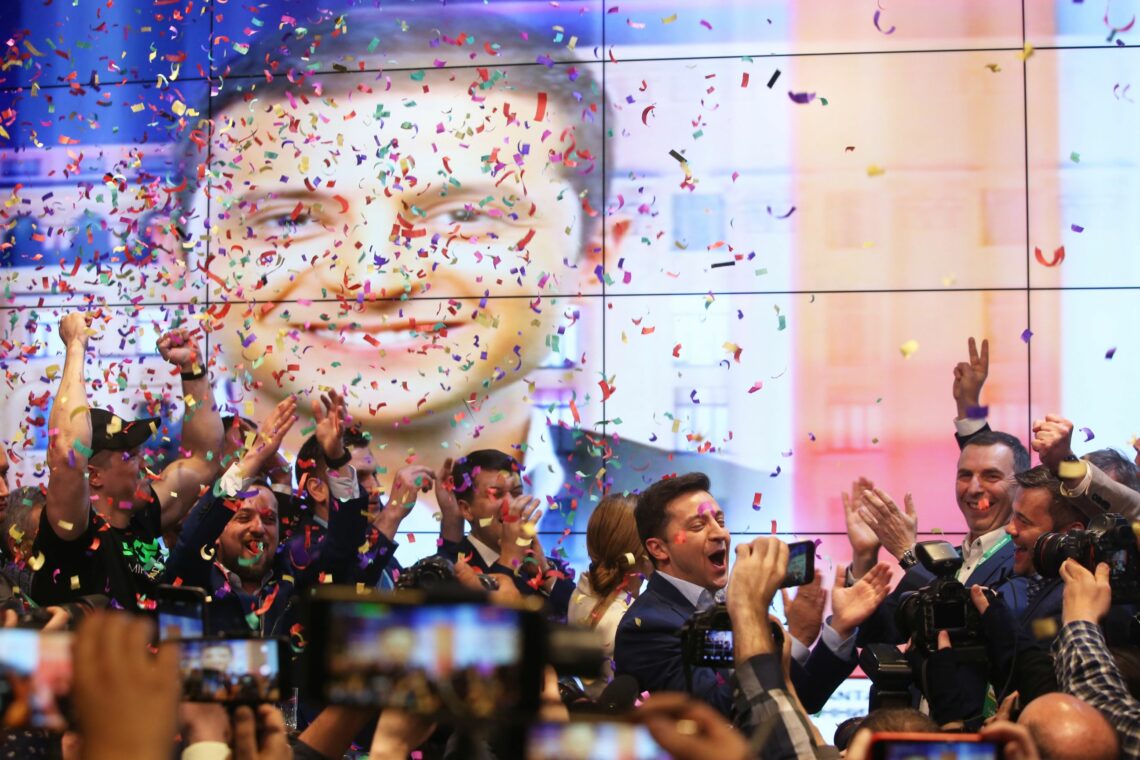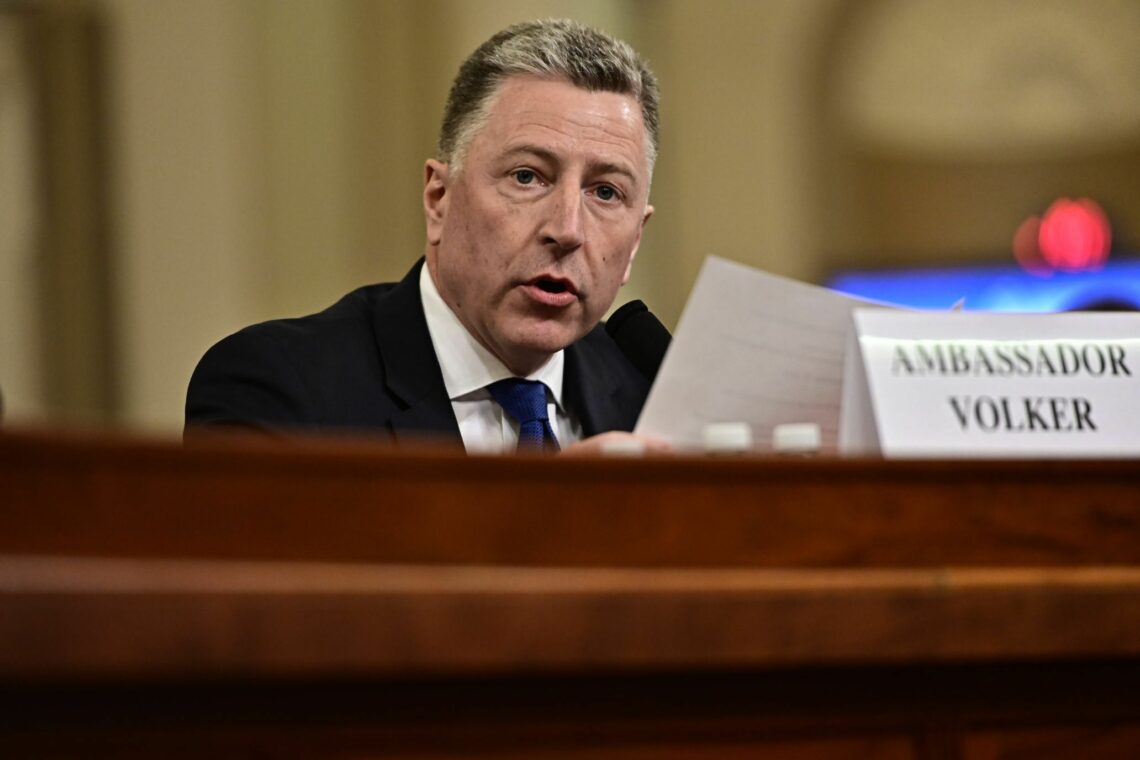Assessing President Zelenskiy’s first year
With Ukrainian President Volodymyr Zelenskiy having been in office for more than a year, now is an opportune time to measure his progress in solving his country’s problems. Several black swan events, top among them the Covid-19 outbreak, have proven enormous hurdles.

In a nutshell
- President Zelenskiy faced huge challenges a year ago
- Three black swan events have hindered his policies
- He has made modest progress on rooting out corruption
On May 20, Ukrainian President Volodymyr Zelenskiy celebrated the first anniversary of his administration. Looking back at his mixed record, it is worth bearing in mind the daunting nature of the challenge he faced. One of the poorest countries in Europe, Ukraine was at war with Russia and in the clutches of a group of predatory oligarchs. The need for a new beginning was dire. If President Zelenskiy should fail to live up to expectations, the longer-term implications could be tragic.
There were good reasons why so many Ukrainians preferred to vote for a comedian who had impersonated a president on television rather than for a professional politician who had served as president. Brutally disappointed by the failures of the Orange Revolution in 2004 and then of the Maidan Revolution in 2014, many voters were ready to take the plunge into the unknown rather than face more of the same.
In a runoff election generally deemed free and fair, Mr. Zelenskiy roundly defeated the incumbent Petro Poroshenko, winning 73 percent of the vote. A year later, President Zelenskiy’s main reason for optimism is that he remains popular. In a recent poll, 68 percent of respondents said they approve of his performance. The list of his more specific achievements is less comforting.
Great expectations
In the words of then-acting United States Ambassador Bill Taylor, Mr. Zelenskiy was elected with “great expectations, great ambitions, great intentions.” The danger moving forward is that unless those expectations are fulfilled, at least to some significant extent, having had great ambitions and great intentions will not be enough.
The stakes are high. If Ukrainians begin to believe they are headed for yet another disappointment, then the damage to society and trust in government could be substantial.
President Zelenskiy moved swiftly to break political gridlock.
To his credit, President Zelenskiy and his administration did get off to a good start. He moved swiftly to break political gridlock by calling for snap elections to the country’s parliament, the Verkhovna Rada. Held on July 21, 2019, those elections confirmed that his popularity with voters remained high. Named after the television show that made Mr. Zelenskiy famous, his newly formed “Servant of the People” party won 254 of the parliament’s 424 seats.
With many new faces entering the Rada, and with a government composed of reformers who had a reputation for honesty and integrity, the stage was set. The new team rolled out legislation for key reforms that the Rada swiftly enacted. The most significant bills targeted illicit enrichment by state officials, deprived lawmakers of immunity against prosecution and introduced improved protection for whistleblowers. In addition to such anti-corruption measures, the Rada also passed long-awaited legislation on the market for land sales.
Three black swans
Fortune did not smile for long. In an op-ed article published in the New York Times to mark his first anniversary in office, President Zelenskiy highlighted the arrival of three black swan events. “We had high hopes and a fierce commitment to improving our embattled country, both at home and on the world stage. Then the past year happened,” he wrote.
The first of the three was the impeachment of U.S. President Donald Trump, which revolved around a telephone conversation held between Presidents Trump and Zelenskiy in July 2019. The scandal forced the resignation of the U.S. special envoy for Ukraine, Kurt Volker, who could have provided valuable support in Ukraine’s peace talks with Russia. The political elites in Kiev mostly managed to stay out of the fray and President Zelenskiy’s standing may even have been enhanced.

The second event arrived in January 2020, with the downing of Ukraine International Airlines Flight 752 by Iran. In addition to the loss of life, the incident brought back traumatic memories of the downing in July 2015 of Malaysian Airlines flight MH17 over the war zone in Donbas.
The third and most threatening was the coronavirus. Given the poor state of the national healthcare system, the pandemic’s impact could have been devastating. However, President Zelenskiy implemented a swift and comprehensive lockdown. By early July, the country had kept the score to 51,224 confirmed cases of infection and 1,327 confirmed deaths. Polls have shown that most Ukrainians support the president’s early and decisive action.
While it is clearly encouraging that President Zelenskiy has come through these events with his credibility as a reformer mostly intact, he still has to show he can address the pivotal issues that will make or break his presidency.
Ending the war
First and foremost is the need to end the war in Donbas, which by now has killed close to 14,000 people, left tens of thousands wounded, forced millions to leave their homes and brought devastation to the country’s industrial base. Reaching an agreement with Russia to end the conflict would not only be a breakthrough for Ukraine, it would facilitate a significant improvement in relations with Russia and the West.
While the optics have been good, little of real consequence is happening.
Again, President Zelenskiy started off well. The Kremlin reacted positively to his readiness to restart peace talks. Three rounds of prisoner exchanges have enabled 131 captured Ukrainians to return home. In December, the Ukrainian leader and Russian President Vladimir Putin met face-to-face in Paris. It was the first time in three years that the Normandy group had hosted such a high-level meeting.
Yet, while the optics have been good, little of consequence is happening. The two presidents did have a long talk in Paris, but their positions on ways to end the war remain far apart.
The problem with the Minsk peace process is that it was set up as a trap for Ukraine. Allowing the Kremlin to assert that it was not involved in the insurgency may have been expedient, facilitating Russian participation in high-level meetings. However, it quickly became clear that the move was tantamount to letting the Kremlin set the rules of engagement. Any concessions made by Kiev simply brought more demands from the Kremlin. The process soon became gridlocked.
What may still change the equation is that Russia is in such financial trouble that it could decide to cut its losses by ceasing to bankroll the insurgents. While this may provide more leeway for finding compromise, it remains doubtful that either side will be ready to give way on the core issue.
Can Kiev allow elections on Russian-controlled territory and then integrate the elected officials into a new federal-state structure? Although it would end the war, it would also leave Ukrainian sovereignty deeply compromised. President Zelenskiy would find it extremely hard to win approval for such a solution.
Oust the oligarchs
A second challenge that will determine the fate of the Zelenskiy administration has to do with his promise to implement a policy of “de-oligarchization.” Here too, the record is mixed. The anti-corruption measures enacted by the Rada have impeded dirty dealings and have shown outside actors like the International Monetary Fund (IMF) that the country was making progress. But no matter how zealously the government implements reforms, it will only solve part of the problem.
Living up to expectations will require more than formal measures to restrain corruption.
A case in point is a recently adopted banking bill that prevents nationalized banks from being returned to their previous owners. Aimed at Igor Kolomoisky, the richest of the oligarchs, the optics could not have been better. The core of his holdings was PrivatBank, Ukraine’s largest lender. When the government was forced to take it over in 2016, it was alleged that he and an associate had brought the bank to failure by siphoning off $5.5 billion.
Many also believed that Mr. Kolomoisky was a close ally of Mr. Zelenskiy during the presidential campaign, so it was a major event when the Rada approved the banking bill, effectively terminating his long struggle to regain control. This was also a key factor in the IMF’s decision on June 9, 2020, to approve an 18-month, $5.5 billion loan deal for Ukraine.
Yet, the case of Mr. Kolomoisky and the PrivatBank also illustrates that living up to voter expectations will require more than formal measures to restrain graft. Unless those guilty of serious corruption are taken to task and their ill-gotten gains confiscated, Ukrainians will not believe justice has been served. Nor will it be realistic to expect a transformation of economic behavior. This, crucially, is where the reformers have come up short.
The people who voted for Mr. Zelenskiy expected his administration to make swift moves by law enforcement to arrest and prosecute those who had been involved in gross self-enrichment, ranging from corrupt officials and politicians to well-known figures in the world of business. That has not happened. The billions that have been stolen remain hidden, and the heavy hitters have begun striking back.
‘Clean hands’
A government reshuffle in March saw many of the fresh faces being fired and replaced. This was when reforms began to veer off course.
President Zelenskiy has vowed he will keep making personnel changes until Ukraine gets “a perfect government.” But this illustrates the difference between optics and effect. Bringing a new generation of inexperienced politicians into power may be touted as “clean hands” taking over. But they will have to confront people in the deep state, who know the ropes and have considerable resources at their disposal. In the absence of effective law enforcement, the latter will prevail.
Scenarios
Although the IMF is correct in concluding that “[s]ound fiscal and monetary policies since the 2014-15 crisis have resulted in a sharp reduction in Ukraine’s external and internal imbalances,” the core problems of weak law enforcement and low trust in government remain. If the government cannot solve these intertwined problems, then it cannot meet its promises of a fresh start and better living conditions for ordinary Ukrainians.
Continued life support from the IMF will not help end the war. Nor will it encourage the “steadfast implementation of structural reforms” that the fund considers necessary to create a more competitive economy.
The outlook for the remainder of President Zelenskiy’s first term is that the war will drag on, as a low-intensity frozen conflict. Many of the notorious oligarchs will succeed in holding on to their wealth, perhaps even in clawing back a good part of their political influence. If that leaves voters disillusioned again, it is not likely that President Zelenskiy will be reelected.







